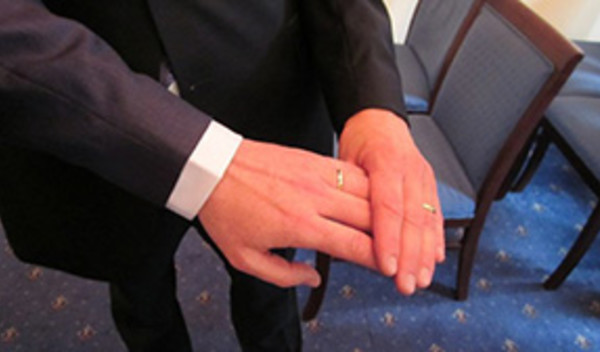
Article 1 / 4
Guide to advising on pensions and equalitySurvivors’ pensions need sea-change for equality

The Civil Partnership Act 2004 enshrined in law that same-sex couples should be afforded equal rights and full implementation of the legislation took place in 2005.
This should allow an individual’s right to survivor’s benefits connected with contracted-in occupational schemes, where it provides them to married couples.
But while elderly heterosexual couples will have had years to accrue rights to partner benefits on private and company pension plans, many plans will only offer entitlements from 2005 onwards to civil partnerships and to married gay and lesbian couples.
This means a gay couple, who may have lived together for 30 years and may even have children, will not be able to pass on the full benefits of their pension should one of them die.
This case was highlighted in the Walker versus Innospec case (as discussed in the first article in this Guide), when John Walker took his case against his employer and scheme sponsor, Innospec, to the Court of Appeal, claming he would only be able to give £500 of his final salary pension to his husband.
If Mr Walker had married a woman, he could have given her £41,000.
His appeal was rejected. Had it been upheld, it could have set a precedent for allowing all gay couples to receive full pension rights.
As it stands, the law allows for the calculation of pensions for surviving civil partners to be restricted to the period of the member’s service on and after 5 December 2005, the date the Civil Partnership Act became law.
Alistair McQueen, savings and retirement manager for Aviva, puts it like this: “In pensions, as in most walks of life, it is the intention in law and practice that all people are treated equally, regardless of their sexuality.
“This equality applied to all new savers today, be it in the state pension system or in a private or public occupational pension scheme.
“The only difference arises from parliamentary precedence in its reluctance to apply retrospective legislation.
“In this area, parliament is reluctant to impose retrospective costs on pension schemes which have not been taken into consideration in their earlier funding assumptions.”
Mr McQueen has hit the nail on the head: cost.
In May 2013, the then pensions minister Steve Webb told the Joint Committee on Human Rights the cost of fully equalising survivor’s rights in the public sector alone could be “of the order of £3bn to £4bn.”
By 2014, the government had clarified the cost of removing all differences in treatment as about £2.9bn for public service schemes and £0.3bn for private sector schemes.
Some companies have committed to equalising survivor benefits, to remove such perceived discriminatory treatment and to ensure the partners of married same-sex partners and civil partners are not put into financial detriment.
These include the National Trust, BP and the Royal Bank of Scotland.
And it is always worthwhile ensuring that a proper will and testament has been put in place, so that whatever inheritance and pension benefits are available will be paid to the surviving spouse or civil partner.
David Trenner, technical director for Glasgow-based Intelligent Pensions, says: “Inheritance is determined by the last will and testament so only if someone died intestate would 5 December 2005 be relevant.”
The government is still consulting on the thorny issue of survivors’ benefits.
But regardless of whether the government enforces a change in the future, inequality is affecting people’s right to plan for their retirement, arrange wills and sort out inheritance, as well as ensuring their loved ones will be financially secure.
Mr Trenner adds: “Politicians make laws and there has not been the will to make changes.”
A statement from the Public and Commercial Services Union says: “Lesbian, gay, bisexual and transgender (LGBT) employees pay into their pension schemes in the same way as heterosexual employees and so their spouses and civil partners should be entitled to the same benefits as their straight counterparts - it is a simple matter of fairness and equality.
“By removing these inequalities that allow employers and pension providers to treat married couples and civil partners differently on pension rights, the changes would ensure equal treatment for all civil partners and spouses, men and women, regardless of their sexual orientation, gender or gender identity.
“The legal entitlement to dependants’ pensions cannot be backdated to before 5 December 2005. Of course, inheritance is determined by the last will and testament so only if someone died intestate would 5 December 2005 be relevant.”



